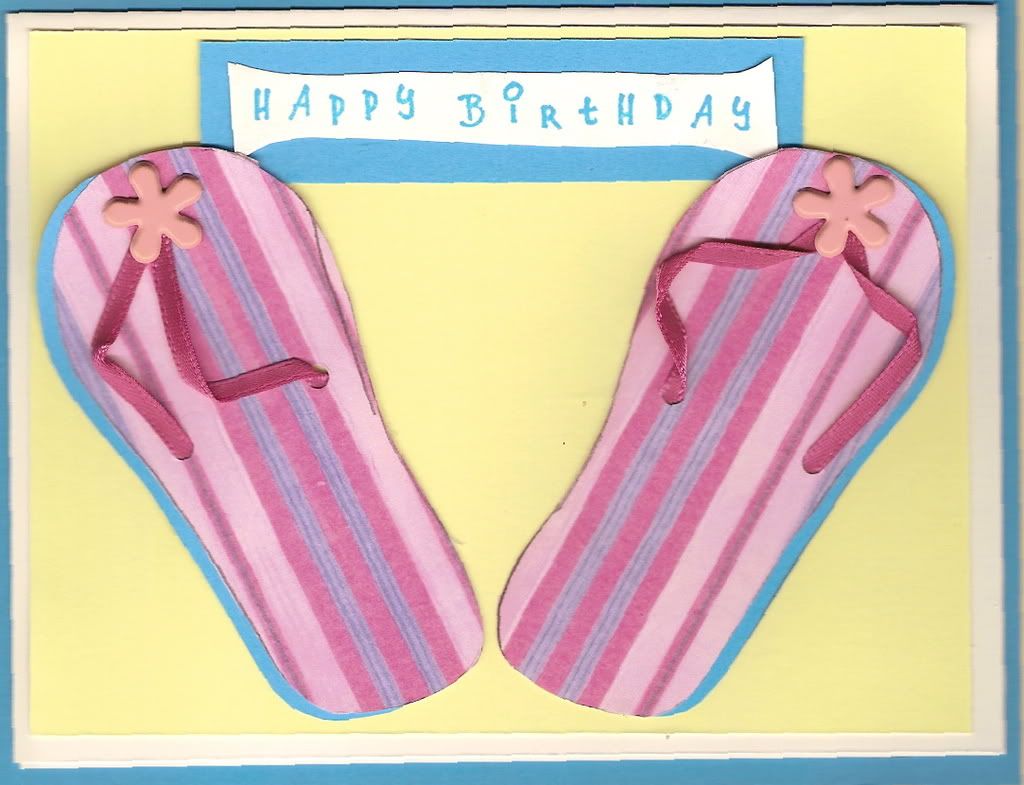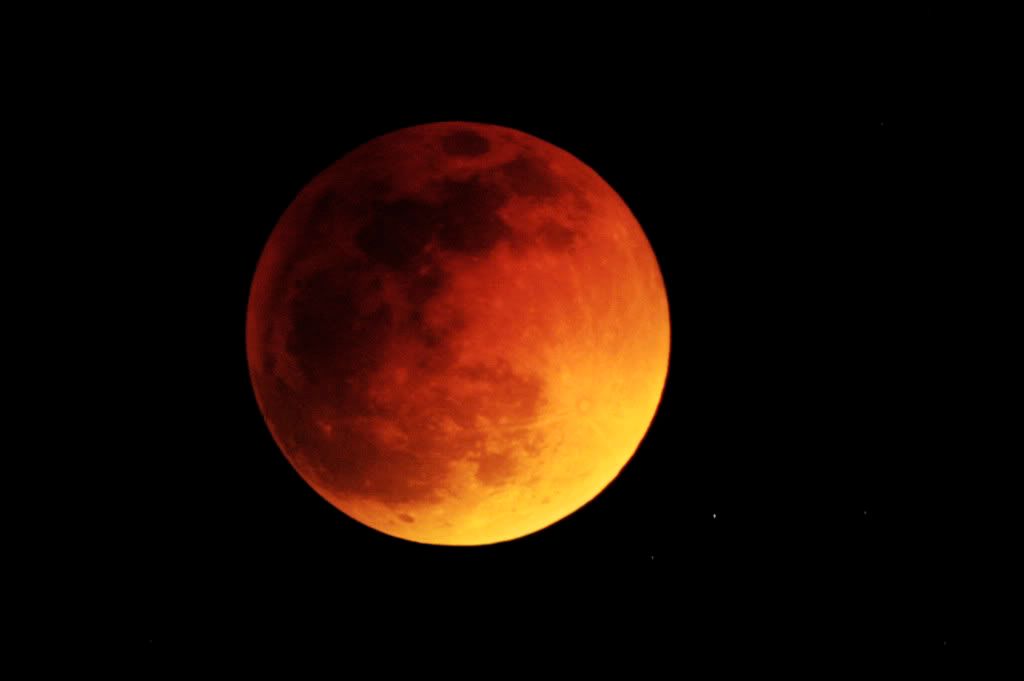 From Today's Writer's Almanac:
From Today's Writer's Almanac:
QUOTE: "Leap and the net will appear." ~ Zen saying

OPTIMISTIC VOICES You're out of the woods, you're out of the dark, you're out of the night. Step into the sun, step into the light. Keep straight ahead for the most glorious place on the face of the earth or the sky. Hold onto your breath, hold onto your heart, hold onto your hope. March up to the gate and bid it open...
 From Today's Writer's Almanac:
From Today's Writer's Almanac:
Posted by
Susan
at
2:45 PM
0
comments
![]()
Labels: Chard deNiord, frog, Kermit, leap, Michael Smith, zen
 I first heard of the Six-Word Story when a friend of mine who's on Flickr tagged one of his photos with the term... and it led me to finding out about an entire category of such pictures/descriptions that qualify:
I first heard of the Six-Word Story when a friend of mine who's on Flickr tagged one of his photos with the term... and it led me to finding out about an entire category of such pictures/descriptions that qualify:
Posted by
Susan
at
3:15 PM
0
comments
![]()
Labels: Dorothy Parker, Larry Smith, Lisel Mueller, Rachel Fershleiser, six word story, Willie Nelson
Posted by
Susan
at
4:45 PM
2
comments
![]()
Labels: crocus, Dar Williams, February, Joan Walsh Anglund, Jud Caswell, Karin Gottshall, Wendell Berry
 In the excitement of having my sister here from Wednesday night through Sunday morning, I've not had the time to blog much - this one, honoring musician/friend Rachel Bissex, who died February 20, 2005 is a few days overdue. I posted the following to the Dar-list the evening of her death - read the updates after this re-telling for the proverbial silver lining (god, I miss her so much... :-)
In the excitement of having my sister here from Wednesday night through Sunday morning, I've not had the time to blog much - this one, honoring musician/friend Rachel Bissex, who died February 20, 2005 is a few days overdue. I posted the following to the Dar-list the evening of her death - read the updates after this re-telling for the proverbial silver lining (god, I miss her so much... :-)
Date: Sun Feb 20 18:05:33 2005
Hello, All -
I received a note from Vic Heyman earlier today... informing that Rachel Bissex died at 1:15 this morning, February 20, 2005 from complications of breast cancer at the age of 48. In an attempt to channel my grief, I wrote up the following a few hours later and posted it to our local sf_folk discussion list - since there's quite a bit of Dar-content, I thought I'd share it here as well...
*****
"She was diminutive in size but she was large in grace
she was so kind to my child and looked right in her face
I won't forget the words she spoke that February night
when she threw back her shot glass and said with all her might..."
I first met Rachel in 1998 when I accompanied Brian W. to Power Studios in Miami for an in-the-round with Marie Nofsinger, Big Blue Sky and Ms. Bissex - Brian is a long-time friend of Rachel's and introduced me to her before the show. I was very new to our folk scene and still in amazement that many of the performers were so accessible and kind - Rachel and I had a lovely chat and, when she found out I was a major Dar Williams fan, told me Dar did harmony vocals on Rachel's just-released I Used to Be Nice CD and that the song, Royal Blues, contained many Dar references. Of course I asked if I could buy it -she sold me the last copy... until she could get home to Vermont to replenish her supply!
I went to my first Folk Alliance (an international music conference) in Albuquerque February 1999 and Rachel hosted the wonderful Emerging Artists showcase - rather than solo artists taking turns, the room was composed of a core group of performers, backing each other up on harmonies and instrumentation as individual songs were spotlighted. The phrase that most comes up when talking about Rachel is "generosity of spirit" and this format was so typical of her - she always stressed collaboration and cooperation.
Our paths crossed many times in the years following - in fact, it was on a recommendation of Rachel's that I switched my wine of choice... and whenever she knew I was in the audience, she changed her song lyric to "got a little Pinot Grigio for a woman with the blues?" and looked knowingly in my direction... :-)
Rachel's version of Dar's I Love I Love reduced me to tears on more than one occasion and we shared a love for Joni as well - in addition to her impeccable taste in cover songs, Rachel's original compositions were political and passionate and pure, singing of body image and love (connected or lost) and those in our community who lift us up by their very presence.
Rachel Bissex was one of those people - when she wrote Just Like That (about Vic and Reba Heyman, among others), she could just as well have been singing about herself. Dancing with My Mother speaks of the "joy and the desperation in music" - Rachel reflected the dichotomy...
Rachel took the Folk Train from Montreal to the Vancouver Folk Alliance in February 2001 - there's a great recounting in story and photos, much in her own words at http://www.gotfolk.com/artists/victorheyman/folktrain2001.htm
"for you have got the power in your trembling hands...
'cause you have got the power in your sweet and gentle voice"
Rachel's song In the Middle was included on Volume II of the compilation Before Their Time, "a musical resource to promote healing, and it contains far more than entertainment. Dedicated to the memory of people who died young - from accidents, illness and disease, suicide, murder, SIDS or stillbirth, war, terrorism and other causes - it is intended to help survivors recover from the emotional trauma and extended grief that follows a premature death." http://www.beforetheirtime.org/contents.html
Rachel was a headliner at our South Florida Folk Festival in 1996 and again in January 2004 - she was diagnosed with breast cancer in March 2003, battled tirelessly and seemingly conquered... until this recent reoccurrence. Her latest CD, In White Light, chronicles much of this journey - to quote Rachel: "even though [the songs] were written before all my troubles, they deal mostly with the themes of hope, strength, kindness, and living in the moment. Appropriate".
Many are aware of the lovely video of Rachel's song Here Now, made and performed at NERFA (Northeast Regional Folk Alliance) by a large group of friends - you can see the video at www.ericschwartz.com/herenow.html and go to www.rachelbissex.com for more info on Rachel's recordings and life history [Susan's note: these links seem to be inactive now]...
I'm writing this before I leave Wednesday for the Folk Alliance in Montreal - two events had already been planned and will be even more poignant now under the circumstances...
~ On Thursday afternoon, we are encouraged to "come share a song for Rachel or a few words, or quietly listen. We'll have a guest book to sign for Rachel and her family. Bring a song, poem, a moment of silence, or just your signature".
~ Saturday night, "during Rachel's Performance Alley spot several of her close friends have stepped up to the plate to bring her music to Folk Alliance this year. Diane Zeigler, Lucie Blue Tremblay, Eric Schwartz, Stephanie Corby, and Tom Prasada-Rao will each present one of Rachel's songs. Join these and all of Rachel's friends to celebrate her music during that time. "
Rachel Bissex had a huge impact, both personally and professionally, on our South Florida, as well as the national, folk community - my tale of blessings is but one of countless others...
"there's a moral to this story, it's obvious it seems
you can be a queen, you can outlive all your dreams
but don't forget to leave a little something behind you when you go
especially if you plan to walk off naked in the snow
do not be afraid
do not be afraid..."
Posted by
Susan
at
5:05 PM
0
comments
![]()
Labels: Elizabeth Levang, Jean de Boufflers, Mary Oliver, Rachel Bissex, remember
 So... we pulled it off - my daughter Sarah and I threw a surprise birthday party for my visiting sister!
So... we pulled it off - my daughter Sarah and I threw a surprise birthday party for my visiting sister!
When Mari e-mailed me a few weeks back, said she was flying into Tampa for a business conference and would love to drive over mid-week when she was finished to hang with us for a few days, the wheels began to turn (no pun intended) - she had a major milestone birthday last month and, having lived in South Florida from 1992 - 2000, there are still people here who know and love her...
Here is the Evite invitation we sent out:
Surprise Party: No Flip-Flop About It - Mari's 40!
Mari (Sue's sister/Sarah's aunt), who lives in Atlanta, will be in town for a visit following a business conference in Tampa. She turned 40 on January 18 and we'd like to surprise her with a women's get-together here.
Mari just got a tattoo on her lower back (of flip flops!) so we'd like to ask each of you to wear your favorite pair, as well as write up some advice/wise words on the occasion of turning the magical Four-Oh (printed on an 8 1/2" x 11" paper of your choice to include in a memory scrapbook, please)...
We will provide scrumptious appetizers and a variety of beverages (soda, tea, water, red and white wine as well as a special drink invented in her honor: the Maritini... :-)
Bring your best self and join us in celebrating Mari... and the circle of female friendships - 40 rocks!
It was a delightful worlds-colliding evening and we are suitably exhausted/exhiliarated - today will most definitely be a Bums By the Pool Day (aaaahhhh)...
I adore my "baby" sister - I was 13 when she was born and truly felt like her second mother for years. The family legend is that my parents tried to have more children after me but were unsuccessful, until my father converted to Catholicism, whereupon my mom became pregnant immediately - the name Mary Catherine (which she later shortened and changed to Mari) was conferred on the "miraculous conception"... :-)
I read to her, played with her, watched out for her - I regaled her with lullabies of I'm the Greatest Star and I'd Rather Be Blue and, when we were both adults and Mari still lived close by and came for Christmas, our clean-up ritual was to put on the Funny Girl soundtrack and sing along (loudly) to the entire CD as we made fast work of Tupperwaring and dishwashing.
She was eight when my husband and I got married - he and I decided to give away all of our duplicate albums (a leap of faith our union was forever!) and she became the unlikely recipient, turning into the coolest kiddo in the neighborhood as the new proud owner of The Beatles' Sgt. Pepper's Lonely Hearts Club Band, Joni Mitchell's Blue and James Taylor's Mudslide Slim and the Blue Horizon.
[ Decades later when I was beginning to segue to CDs, after having transitioned to cassettes, I made the vow I was not going to replace anything I previously had in the other two formats, but would instead just move forward musically from there - for my birthday party the next month, Mari said "that's the stupidest f*cking rule I've ever heard" and gifted me with Carole King's Tapestry on CD (which of course was one of the many albums we had given her way back then... :-) ]
As we grew up, the gap lessened and I segued from caretaker to confidante - I still consider her one of my best friends, and we have such an easy relationship.
We have a variety of running jokes, one of which comes from the long-since-retired TV show thirtysomething, in which the character Melissa is speaking to her younger sister about the differences in their family roles according to birth order - Melissa says, "as the older child, it's my job to fulfill all of mom and dad's deepest hopes, dreams and desires. All you have to do is stay out of prison." So true, so true - I got in major trouble in high school (I plead the fifth on details) and was told I had dragged our family name through the mud but, when Mari did the same thing 13 years later, I recall the party line was "kids will be kids" (no fair!).
I loved the days when Mari shadowed me from room to room, yakking away, looking up to me reverentially, wishing she had "bazooms" (breasts) - she was a tiny thing ("Bones" was her nickname) and she threw herself into everything she attempted (whether it was Junior Civitan, cheerleading or soccer), never envisioning failure as an option. She was socially and scholastically proficient and graduated from the University of Georgia - she's always been independent and resourceful and grateful for whatever blessings came her way, even when our parents' marriage began to erode and she was caught in the middle.
Posted by
Susan
at
3:25 AM
0
comments
![]()
Labels: birthday, Carol Saline, Emily Dickinson, Isadora James, Juliana Hatfield, Sharon J. Wohlmuth, sisterhood
 From today's Writer's Almanac:
From today's Writer's Almanac:
Posted by
Susan
at
11:25 AM
0
comments
![]()
Labels: Daniel Mark Epstein, Edna St. Vincent Millay, Everclear, friendship, suicide
 Last night was the total lunar eclipse, which I watched from the jacuzzi with my sister, my daughter and a few glasses of wine (theirs red, mine white) - it's delightful having Mari here through early Sunday morning, as she flew down from Atlanta earlier in the week to Tampa for a business conference, and then drove across the state to spend a few days with us.
Last night was the total lunar eclipse, which I watched from the jacuzzi with my sister, my daughter and a few glasses of wine (theirs red, mine white) - it's delightful having Mari here through early Sunday morning, as she flew down from Atlanta earlier in the week to Tampa for a business conference, and then drove across the state to spend a few days with us.
Posted by
Susan
at
2:30 PM
0
comments
![]()
Labels: Cat Stevens, eclipse, Frederick L. Knowles, moon, Philip S. Harrington, Ravi Shankar
 So... I was having a discussion with a friend Saturday (Hi, Mel!) about the song Romeo and Juliet - she prefers the Indigo Girls' version and, as much as I love them as a songwriting duo, I'm obsessed with the original by Dire Straits. The former is too urgently strident for my taste, while the latter is more achingly plaintive - in either case, whether a wailed Julie or a whispered Juliet, it's a stunningly classic tune I've loved for decades. Who can resist "all I do is kiss you through the bars of a rhyme, I'd do the stars with you anytime"? - swoon... :-)
So... I was having a discussion with a friend Saturday (Hi, Mel!) about the song Romeo and Juliet - she prefers the Indigo Girls' version and, as much as I love them as a songwriting duo, I'm obsessed with the original by Dire Straits. The former is too urgently strident for my taste, while the latter is more achingly plaintive - in either case, whether a wailed Julie or a whispered Juliet, it's a stunningly classic tune I've loved for decades. Who can resist "all I do is kiss you through the bars of a rhyme, I'd do the stars with you anytime"? - swoon... :-)
There is an amazing live version of R & J on Mark Knopfler and Emmylou Harris' All the Roadrunning CD - it kicks off with a jaw-droppingly gorgeous piano solo and then segues into a 9-minute tour de force, which I listened to four times in a row, loudly, on my 30+ minute drive to Ft. Lauderdale for a meeting this evening!
All this of course motivated me to make a Shakespeare-themed mix CD, which I'll work on tomorrow morning before I go to work and give to my friend Stephen/Mosh (who lives in Massachusetts) tomorrow evening - his parents rent a condo in Delray Beach for a few months every year, and he comes down to visit for a week. He's my Falcon Ridge buddy, and I adore his mom and dad as well - looking forward to a nice dinner together and catching up on each other's lives!
Posted by
Susan
at
11:59 PM
4
comments
![]()
Labels: Charles Boyce, Cyrus Cassells, Dire Straits, Indigo Girls, William Shakespeare
 I'm still glowing from Herbie Hancock's Grammy award for his jazz homage to Joni - interesting analysis below... :-)
I'm still glowing from Herbie Hancock's Grammy award for his jazz homage to Joni - interesting analysis below... :-)
Posted by
Susan
at
2:40 PM
0
comments
![]()
Labels: Benny Green, Billy Collins, Herbie Hancock, jazz, Joni Mitchell, Mark C. Gridley, Rousseau
 I have a meeting tonight which can't be rescheduled - however, my husband and I are planning to sip champagne in the jacuzzi afterwards. Works for me - cheers to love, young and old... :-)
I have a meeting tonight which can't be rescheduled - however, my husband and I are planning to sip champagne in the jacuzzi afterwards. Works for me - cheers to love, young and old... :-)
Posted by
Susan
at
9:25 AM
0
comments
![]()
Labels: Aimee Kelley, Brett Fletcher Lauer, Indigo Girls, love, Mark Twain, Pablo Neruda
 SONG: That's Amore performed by Dean Martin
SONG: That's Amore performed by Dean Martin
Posted by
Susan
at
9:55 PM
0
comments
![]()
Labels: amore, Dean Martin, Grey Livingston, Italian, love, parody
 Even vampires need love... or a reasonable facsimile thereof - I've been fascinated with The Undead since first watching Bela Lugosi on the screen decades ago... and I still think Salem's Lot is one of the most novel (no pun intended) depictions ever...
Even vampires need love... or a reasonable facsimile thereof - I've been fascinated with The Undead since first watching Bela Lugosi on the screen decades ago... and I still think Salem's Lot is one of the most novel (no pun intended) depictions ever...
Posted by
Susan
at
11:59 PM
0
comments
![]()
Labels: Anne Rice, Heinrich August Ossenfelder, Napoleon Bonaparte, Toadies, vampire

